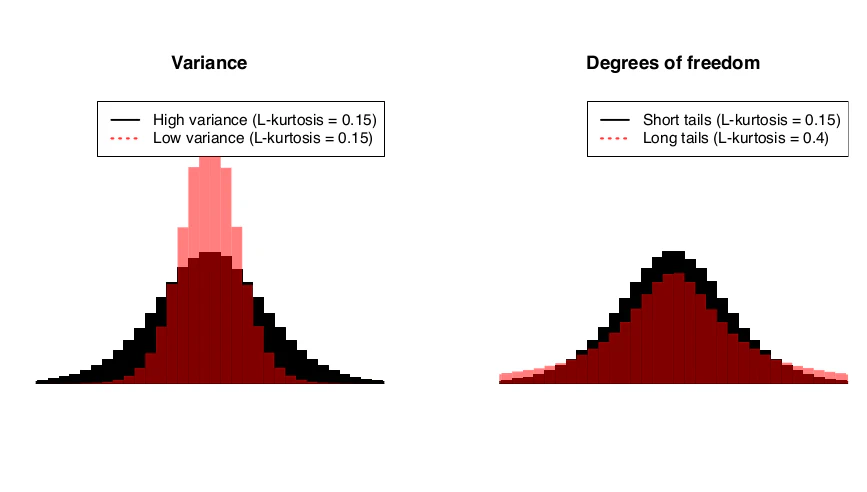System Dynamics of Policy Change: Overcoming Some Blind Spots of Punctuated Equilibrium Theory
 Same L-Kurtosis for different variance and degrees of freedom.
Same L-Kurtosis for different variance and degrees of freedom.
Abstract
In this article, we analyze dynamics of policy change from the perspective of Punctuated Equilibrium Theory (PET). In particular, we investigate how economic crises impact on patterns of policy change in policy areas that vary in terms of their proximity to economic matters: social, environmental and morality policy. We make two contributions. First, we show that economic crises lead to more incrementalist patterns of policy change in crisis-remote policy subsystems and make policy punctuations in these areas less likely. However, if such punctuations do occur, they tend to be particularly extreme. Second, we argue that the empirical implications of PET are best tested by separately analyzing variance as an indicator for incrementalism and degrees of freedom as an indicator for punctuations. The empirical analysis builds on two datasets capturing policy output changes in 13 European countries over a period of 34 years (1980 to 2013).
Online appendix
The online appendix contains an extension of the procedures and results presented in the paper, with extensive description of the different policy portfolios in the environmental, social and moral sectors; the JAGS code for the statistical model, and the ggmcmc output for convergence diagnostics of the model parameters.
COVID19 Crisis special issue
This article has been selected for inclusion in the special issue of the Policy Studies Journal to cover policy implications of the COVID19 crisis: